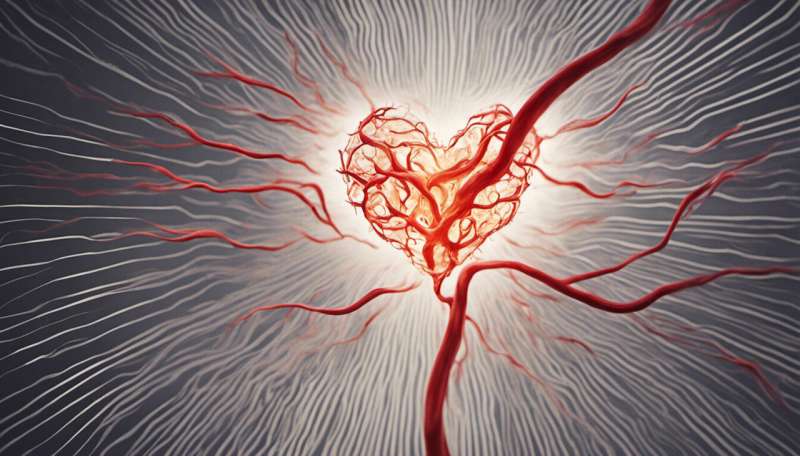Tweaking the heart's response to injury could lead to better treatment

One of the master regulators of the heart's response to injury has been identified, thanks to a Singaporean research collaboration. This regulator could ultimately be used to assess the degree of damage in heart attack patients and pave the way for new treatments.
Cardiac natriuretic peptides (NPs) are neurohormones that play an important role in cardiovascular and kidney health by influencing blood pressure and concentration, and the force with which the heart pumps blood. Previous studies have also suggested that they might help protect the heart against stress and injury—for example, mice lacking the genes to make NPs show more signs of heart damage and die younger. To ensure that the body is able to maintain proper control of the cardiovascular system it is essential that NPs are rapidly cleared from the blood.
The atrial natriuretic peptide (ANP) and brain natriuretic peptide (BNP) are two important NPs produced by heart muscle cells with demonstrated protective effects for cardiac stress and injury. These NPs are removed from the blood by binding to a receptor called NPR3 on the surface of cells lining the blood vessels; the whole complex is then internalized and destroyed.
A team led by Arthur Mark Richards, and Yei-Tsung Chen at the Cardiovascular Research Institute at the National University Health System and National University of Singapore, together with Leah Vardy at the A*STAR Institute of Medical Biology, set out to better understand how levels of NPR3 are regulated in health and disease.
They temporarily starved heart muscle cells of oxygen to simulate the same oxygen supply shortage that occurs in heart disease, and noticed a significant decline in the expression of NPR3 with a corresponding increase in a small, noncoding piece of genetic material called microRNA-100 (miR-100).
MicroRNAs like miR-100 play a crucial role in fine-tuning the strength of gene expression in cells by temporarily silencing them. The team then demonstrated, for the first time, that miR-100 decreases NPR3 gene expression, which may in part contribute to the heightened amounts of ANP and BNP in the blood. Raised levels of miR-100 were also detected in the blood of rats that had suffered the equivalent of a heart attack, and in patients with heart failure.
"This study highlights the potential importance of circulating microRNAs in modulating the cardiac injury response," says Vardy. "Further understanding of this pathway could lead to novel therapeutics for cardiovascular disease."
More information: "Natriuretic peptide receptor 3 (NPR3) is regulated by microRNA-100." Journal of Molecular and Cellular Cardiology 82, 13–21 (2015). dx.doi.org/10.1016/j.yjmcc.2015.02.019



















